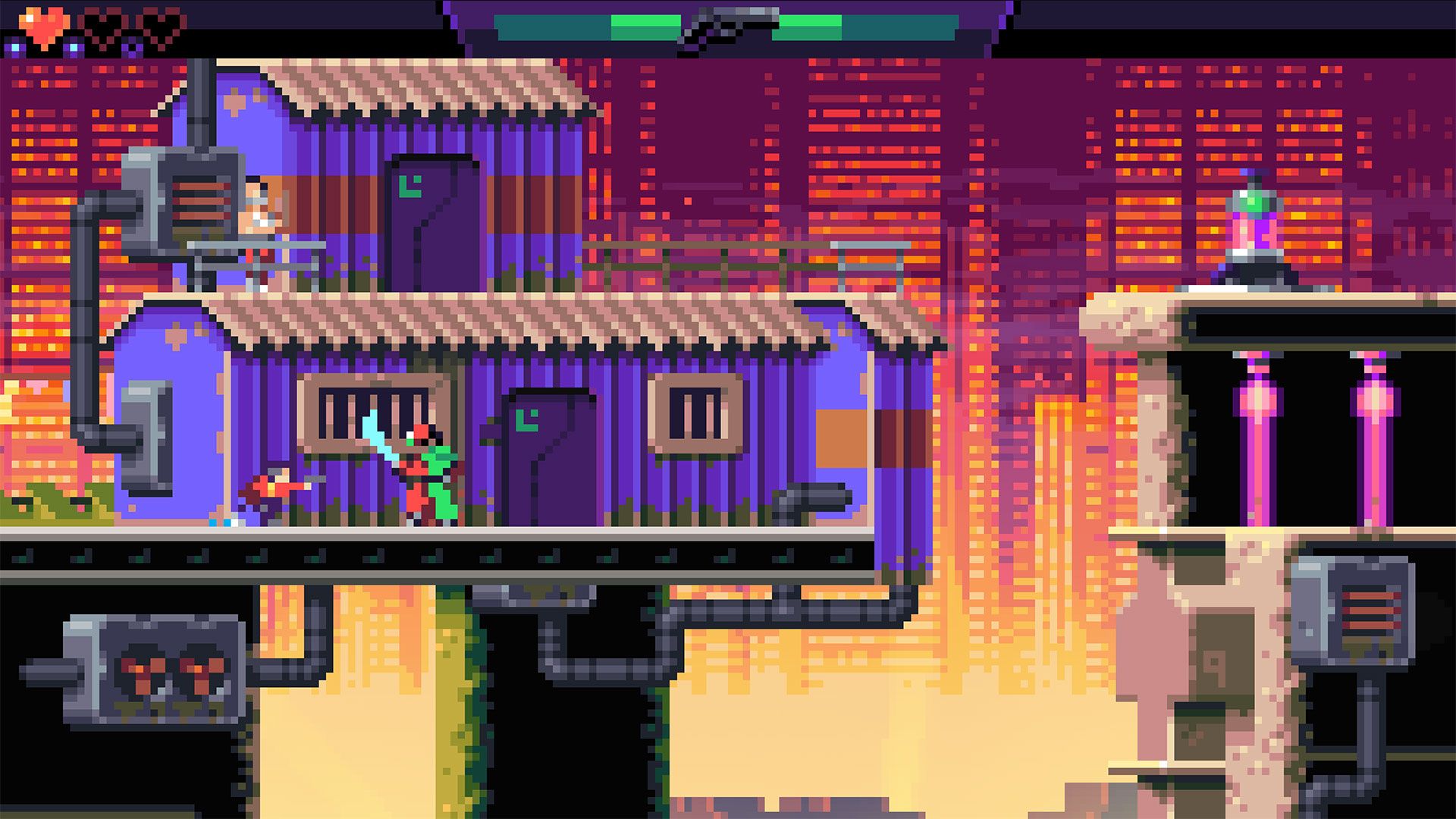Somewhere out in the depths of space is a planet that can be humanity's new home. Lush jungles, sprawling oceans, breathable air and compatible animal life all cover its surface and give people a second chance at managing a planet, but there's always going to be one small problem: wherever humans go, they bring humans with them. The beautiful new planet of Albaryne was settled centuries ago and people live in developed cities, but there's a rebellion heating up against the totalitarian government and it doesn't take much to get caught up in it. Leo was on an errand to recover an artifact when his flyer was sabotaged to cause a huge explosion on his return to the lab and now every security-bot on the planet is after his head.
Lunark is a sci-fi adventure across the world of Albaryne, from its jungles and cities to prisons and space. The protagonist, Leo, has a rare disorder that causes him to age rapidly, but he's dealing with it a day at a time and the only real evidence is his rapidly-greying hair. It's the first hint of Albaryne's mysteries, all of which will be uncovered as Leo runs, fights and leaps his way from one set-piece to the next. As a cinematic platformer, story is equally important as the action, and Lunark delivers on both in a very '90s way.
The cinematic platformer was most popular a couple of decades back, with titles like Flashback, Prince of Persia, Blackthorne and Oddworld all clearly working the same gaming territory. Lunark would have fit right in with them, albeit the art style might have taken a bit of explaining due to its chunky-pixel style that's even more low-resolution than the games of the time. It takes getting used to but after a few scenes the pixelicious look is just another aspect of the game, and the smooth animation of every movement both blatant and subtle more than makes up for the missing detail.
While expressive animation is a major part of cinematic platformers, there's a specific feel to the character control that's a major part of this type of game despite the genre title making no indication that it's required. Movement and all actions are timed to the character's pace and Lunark follows this convention as well. Jumps don't happen until the animation of Leo putting his foot down completes, whether walking or running, and that's also true for drawing his weapon. It's a system that can feel stiff and unresponsive at first, but really isn't due to how completely predictable the timing is once you've played a bit. Leo takes X amount of space to break into a run, and you need to hit the jump button while running Y pixels in front of the edge. The timing is forgiving as well, so once you know how it works Leo goes through jumping and combat motions with responsive precision, and the animation sells every movement.
It also doesn't hurt that Leo has a good number of moves at his disposal at any given moment, and jumps are perfectly spaced to take advantage of them. Small gaps can be cleared with a standing jump while slightly larger ones may need the run button held down for a standing long jump, and the biggest gaps usually have a little extra platform available beforehand so Leo can get running. Leo can also jump straight up to grab ledges or climb down to hang off the platform, the latter move being particularly useful for staying out of sight of guards or landing a drop that would otherwise be deadly. The roll move comes in handy not just for squeezing under small gaps, but also quickly getting out of the way, and once a little space has been cleared between Leo and an enemy it's time to start shooting back.
Combat, like the platforming, isn't all that difficult once you get a reading on the patterns. Each enemy takes a few shots to go down, but have clear indications and responses, so while it's possible to die a time or two learning the best approach, most deaths will come from misreading a platform and falling too far. Checkpoints can be far apart sometimes, and a few mistimed enemy encounters or environmental traps can easily whittle Leo's hearts down to zero, but a little timing, patience and care will get past even the longest stretches without too many repetitions.
Closing Comments:
Lunark is a strong cinematic platformer, more than good enough to hang with the classics of its genre. The animation makes the pixel art feel more detailed than the low resolution would seem in still screens, and the clarity of movement enhances what could be stiff controls to feel more than responsive enough for any situation. The full-screen rotoscoped cutscenes sprinkled throughout the game look fantastic, providing the occasional epic (albeit brief) moment between one level and the next. The levels themselves are also well designed, with a great combination of platforming, puzzles, combat and rewarding secrets scattered throughout. The entire adventure can be completed in a nicely reasonable six hours or less, and each of the twelve levels wraps up before it can get repetitious. Albaryne's history is more complicated than it would initially appear, and Leo's journey through Lunark won't leave the planet the same as when he began.



